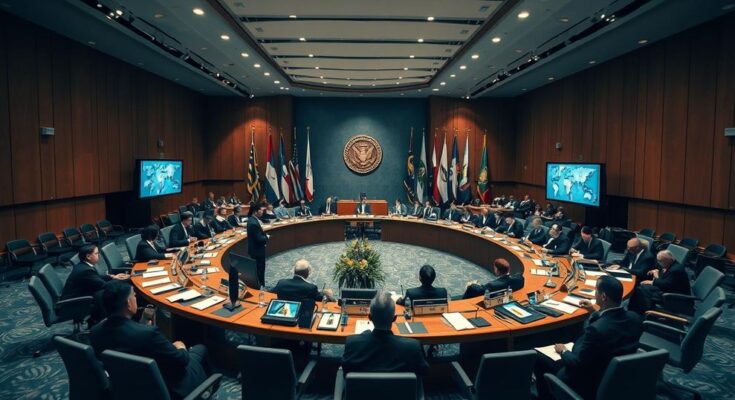The upcoming COP29 climate conference in Azerbaijan highlights ongoing concerns regarding the host country’s oppressive regime under President Ilham Aliyev. The conference will focus on climate finance but occurs amidst significant human rights violations, including mass arrests of political prisoners and suppression of dissent. The ethics of hosting climate events in repressive nations presents a challenge, suggesting a need for the U.N. to reconsider its selection criteria for future conferences by prioritizing host countries with strong democratic and environmental commitments.
The forthcoming U.N. Climate Change Conference, COP29, is set to commence on November 11 in Azerbaijan. This selection marks the third consecutive conference hosted by a dictatorship, with the previous two held in the United Arab Emirates and Egypt. Azerbaijan is keen to gain international prestige by hosting this significant event in its capital, Baku, despite the detrimental implications of celebrating a regime led by President Ilham Aliyev, known for its oppressive governance and rampant human rights violations. In light of pertinent concerns raised by sixty U.S. lawmakers regarding political repression in Azerbaijan, which included a call for the release of all political prisoners, President Aliyev dismissively labeled their appeal as “disgusting.” The government’s brutal treatment of dissenters is well-documented, exemplified by its military aggression against the Nagorno-Karabakh region last year. This invasion led to the displacement of ethnic Armenians and the dismantling of their political and social structures, with several Armenian political figures still imprisoned under alarming conditions. A report compiled by Human Rights Watch and Freedom Now detailed an alarming increase in politically motivated arrests amid a crackdown on dissent leading up to COP29. The number of political prisoners in Azerbaijan surged from 122 in December 2021 to at least 303 as of mid-2023. Notably, economist Gubad Ibadoghlu’s July 2023 detention stemmed from his critiques of the government’s management of oil profits. The conference’s timing coincides with the pretrial detention of Anar Mammadli, a prominent activist charged under dubious circumstances for alleged currency smuggling, indicative of the wider strategy employed by authorities to suppress civil society voices. Concurrently, severe crackdowns on independent media have escalated, culminating in the incarceration of numerous journalists and activists, which starkly contrasts the ideals that climate change initiatives profess. While the importance of addressing global warming is undisputed and necessitates collective action across nations, the continued pattern of bestowing legitimacy upon repressive regimes through such prestigious events is alarming. A more principled approach could involve selecting host countries characterized by strong democratic and environmental standards, such as Costa Rica, effectively breaking the cycle of complicity in human rights abuses while addressing climate issues.
The background of the upcoming U.N. Climate Change Conference highlights a troubling trend in the selection of host nations for such pivotal gatherings. Traditionally, the United Nations considers aspects like infrastructure, climate actions, and financial stability for selecting host countries but notably overlooks political freedoms and respect for human rights. This has resulted in countries with poor human rights records hosting climate conferences, which raises ethical dilemmas about legitimizing oppressive regimes. Azerbaijan’s hosting of COP29 amidst serious human rights concerns underscores this contradiction as the country prepares to assert its role on the global stage while its government engages in systemic repression.
In conclusion, COP29 represents a critical moment for addressing climate change; however, it is overshadowed by the human rights abuses present in Azerbaijan. The repeated choice of repressive regimes as hosts not only tarnishes the intended goals of these conferences but also highlights a need for the international community to reassess its criteria for such events. Moving forward, a commitment to democratic principles and human rights ought to guide selections for future conferences to ensure that the global fight against climate change does not come at the expense of ethical governance.
Original Source: www.washingtonpost.com




